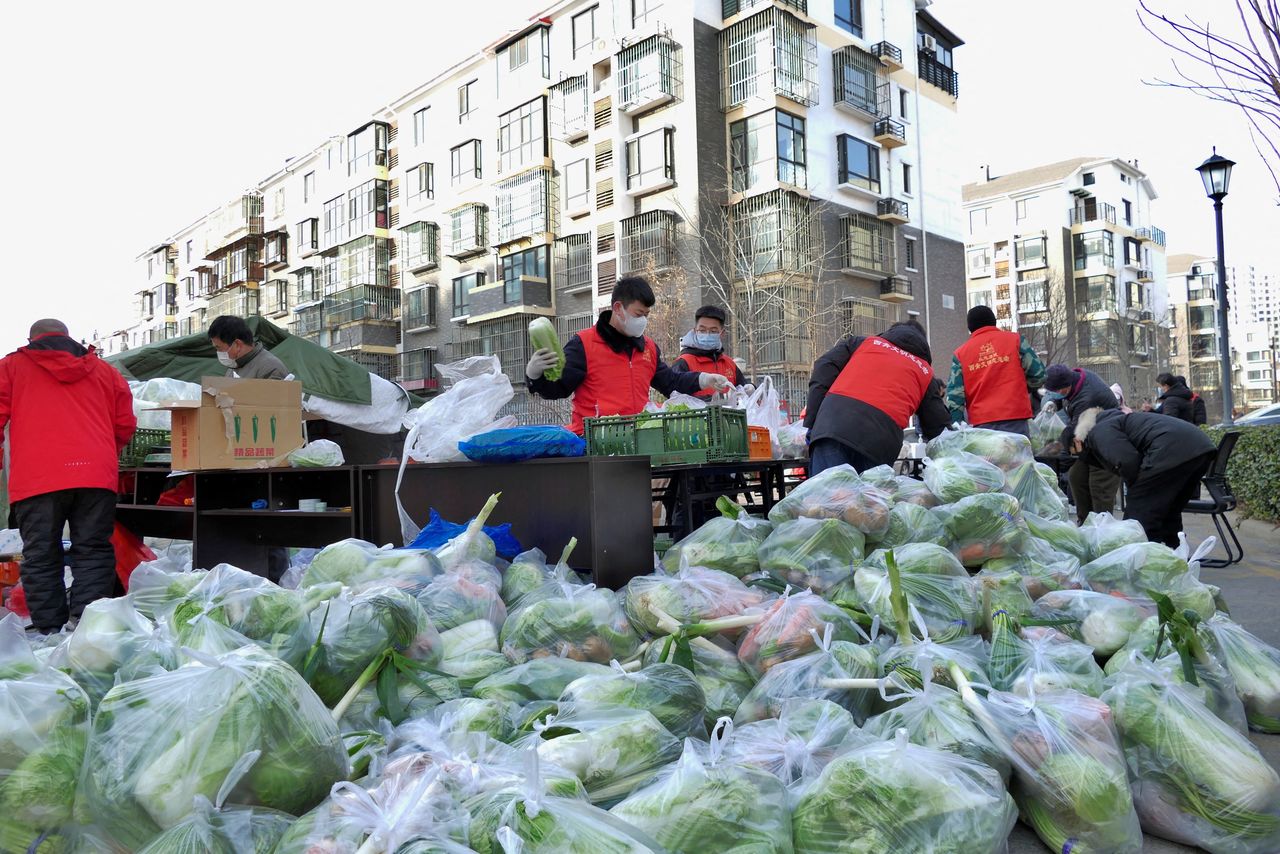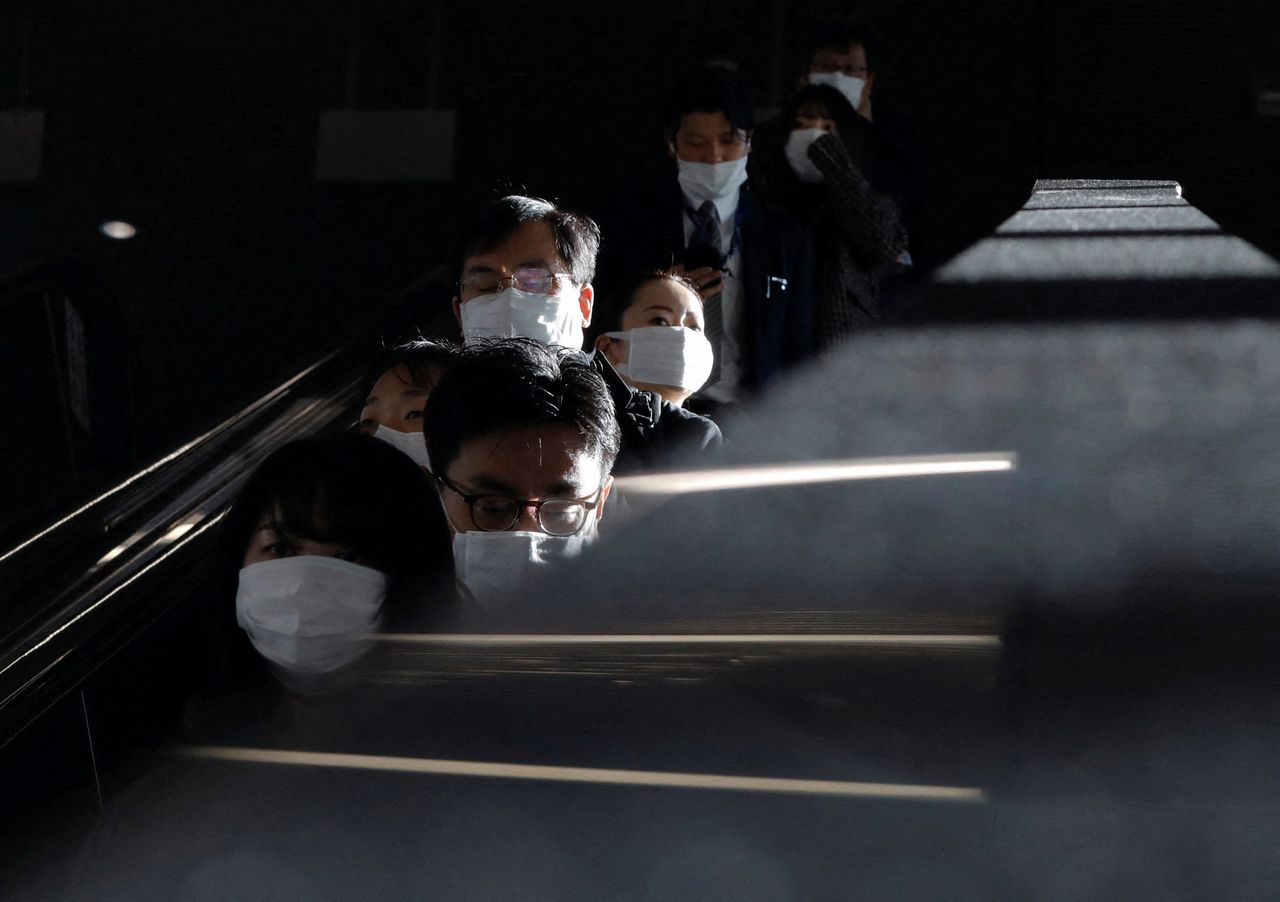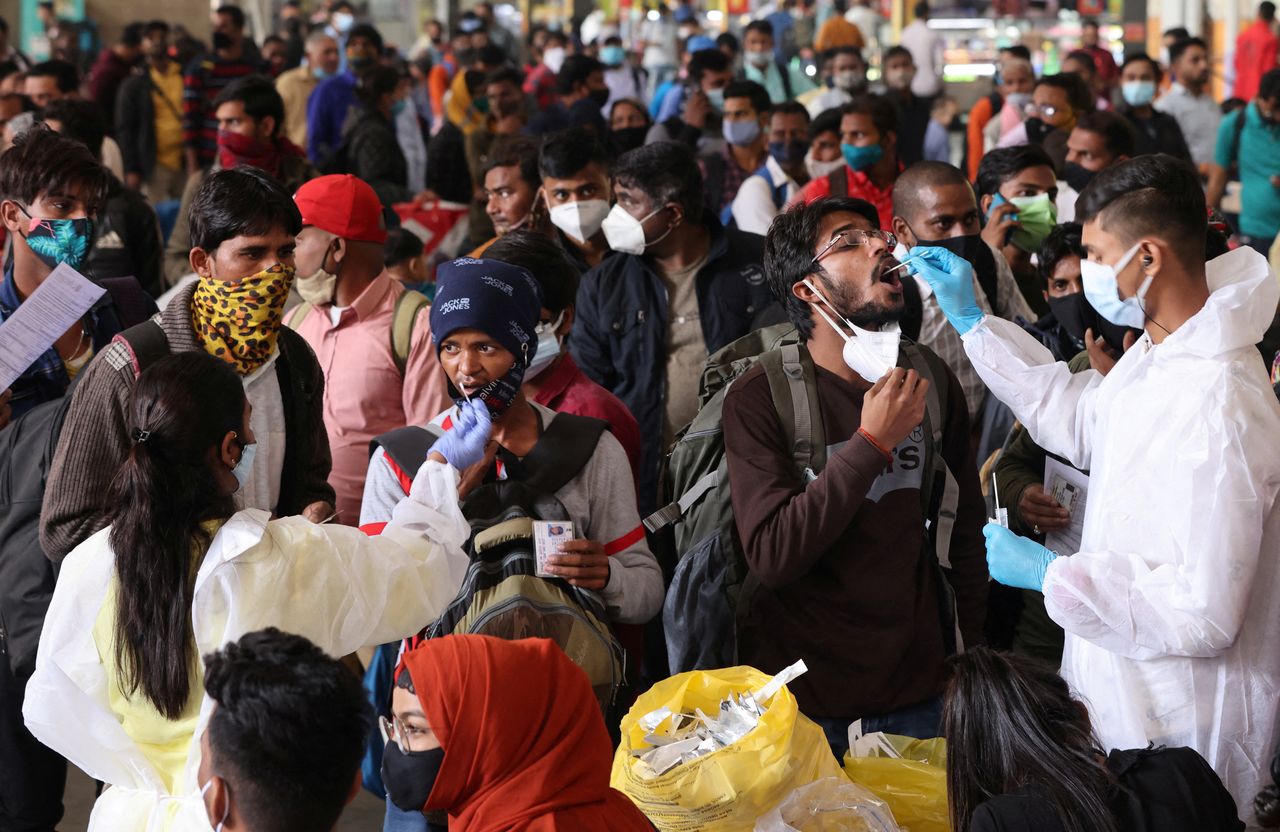What you need to know about the coronavirus right now
Newsfrom Japan
- English
- 日本語
- 简体字
- 繁體字
- Français
- Español
- العربية
- Русский
(Reuters) - Here's what you need to know about the coronavirus right now:
Germany's COVID-19 cases hit new record
Germany on Thursday reported a record of more than 81,000 COVID-19 infections in a day as the government's coronavirus crisis manager warned of possible bottlenecks in testing.
The previous daily record, on Wednesday, was 80,430 new cases. Thursday's death toll rose by 316 to reach 115,051.
Germany's STIKO vaccine committee recommended that all children between the ages of 12 and 17 receive a COVID-19 booster shot.
China's Tianjin outbreak grows
China's northern port city of Tianjin reported an increase in COVID-19 infections on Thursday as it stepped up efforts to rein in an outbreak that has spread the Omicron variant to another city.
Omicron has brought new challenges for China's strategy to quickly stamp out outbreaks, which has taken on urgency ahead of the Winter Olympics from Feb. 4, while the busy Lunar New Year travel season begins this month.
Tokyo's new cases jump to 4-month high
Tokyo recorded a new four-month high in COVID-19 infections on Thursday, and experts forecast the spread of the Omicron variant will cause the daily count to triple by month's end.
Japan's capital had 3,124 new coronavirus cases, the most since Sept. 1. The daily tally will likely exceed 10,000 by the end of January, according to projections announced at a municipal government meeting.
India's big cities could see cases peak next week
New COVID-19 infections in Indian cities such as the capital New Delhi and Mumbai could peak next week after rising rapidly, experts said on Thursday, as the country reported the highest number of daily cases since late May.
The 247,417 new infections were more than 30 times higher daily cases from a month ago, rising as the Omicron variant replaced Delta across the country. Total infections reached 36.32 million, behind only the United States.
AstraZeneca says trial data indicates third dose helps against Omicron
AstraZeneca said on Thursday that preliminary data from a trial showed that its COVID-19 shot, Vaxzevria, generated an increase in antibodies against the Omicron and other variants when given as a third booster dose.
The increased response, also against the Delta variant, was seen in a blood analysis of people who were previously vaccinated with either Vaxzevria or an mRNA vaccine, the drugmaker said, adding that it would submit this data to regulators worldwide given the urgent need for boosters.
Scientists find gene that doubles risk of serious COVID
Polish scientists have found a gene that they say more than doubles the risk of becoming severely ill with COVID-19, a discovery they hope could help doctors identify people who are most at risk from the disease.
With vaccine hesitancy a major factor behind high coronavirus death rates in central and eastern Europe, researchers hope that identifying those at greatest risk will encourage them to get a shot and give them access to more intensive treatment options in case of an infection.
Africa joins race to acquire Pfizer's Paxlovid pills
Africa's top public health body said it was in talks with Pfizer about securing supplies of its antiviral COVID-19 pills for the continent, the latest to join the race for a drug seen as a potential game changer in fighting the virus.
The Paxlovid medication was nearly 90% effective in preventing hospitalisations and deaths, and data suggested it retains its effectiveness against the Omicron variant, Pfizer has said.
South Korea will begin treating coronavirus patients with Pfizer's antiviral pills on Friday, the first Asian country to do so.
(Compiled by Linda Noakes; Editing by Janet Lawrence)

FILE PHOTO: A poster reads "I protect you" during the local coronavirus disease (COVID-19) lockdown in Dresden, Germany, December 14, 2020. REUTERS/Matthias Rietschel

Community workers sort vegetables to be distributed to residents of an area under lockdown following the coronavirus disease (COVID-19) outbreak in Tianjin, where the Omicron variant has been detected, China January 12, 2022. Picture taken January 12, 2022. cnsphoto via REUTERS

FILE PHOTO: Passengers wearing protective face masks are pictured at a train station, amid the coronavirus disease (COVID-19) pandemic, in Tokyo, Japan, January 7, 2022. REUTERS/Issei Kato

Health workers collect swab samples during a rapid antigen testing campaign for coronavirus disease (COVID-19), at a railway station in Mumbai, India, January 13, 2022. REUTERS/Francis Mascarenhas
(c) Copyright Thomson Reuters 2022. Click For Restrictions -
https://agency.reuters.com/en/copyright.html
Reuters Japan Health Asia India Europe Africa South Korea Germany